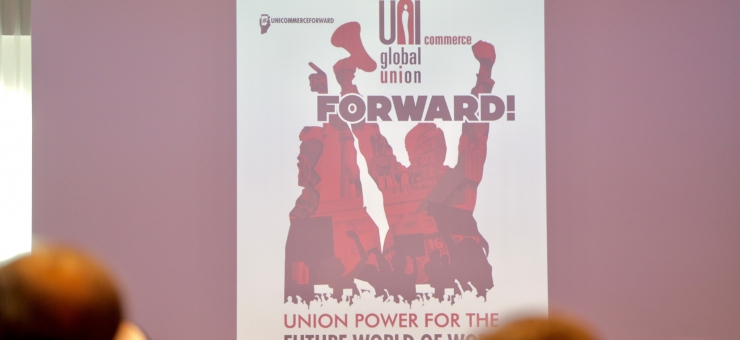News
E-Commerce and Digitalization: New Frontiers for the Global Labour Movement

The growth of e-commerce and the digitalization of retail provide new opportunities for solidarity within the global labor movement. The discussion at the UNI Commerce Global Conference focused on unions’ responses to changes in how we work and shop.
Researcher Harvey McKeon from Peterloo Research described a digital landscape in which the largest online companies have only gotten larger—both in market capitalization and in employment footprint—while traditional brick-and-mortar enterprises are shrinking in many markets.
McKeon stated that the workforce growth at retailers like Amazon comes from workers employed by the company directly and from huge subcontracting networks that often operate in legal gray areas regarding workers’ rights.
His research points to the need for more policy protections for e-commerce workers, and greater union density in this sector.
Unions from around the globe are heeding these recommendations. Barbara Nebart from Australia’s SDA discussed organizing victories in that country’s gig economy and the need for creativity in this new sector. “Union organizing must match innovation with innovation,” she said.
Peter Hellberg from Sweden’s Unionen spoke about the possibilities for e-commerce to create quality jobs, but “only if unions are there to shape the process.”
Hellberg sees his union as vehicle to “raise the skill level in the commerce sector” in part by emphasizing lifelong learning. “If you have more skills, that can lead to a higher salary and better job,” he said.
Linda Palmetzhofer of Handels union in Sweden describe a three-year e-commerce organizing project generating significant results. In the first year alone, the union reported a huge jump in both membership and collective agreements.
Claudio Sagardia from Chile’s Contracops union cautioned about the rapid expansion of online shopping, which has grown 165 percent since 2012 in that country.
Daniel Lovera from the Argentinian labour movement told the crowd that “we need to create a new culture for sustainability at work.” Lovera hammered home the need for political organizing as well.
“We need legislation to protect digital workers and their rights irrespective of where they are working. The unions need to reach broad global agreement. We need continuous political work.”

